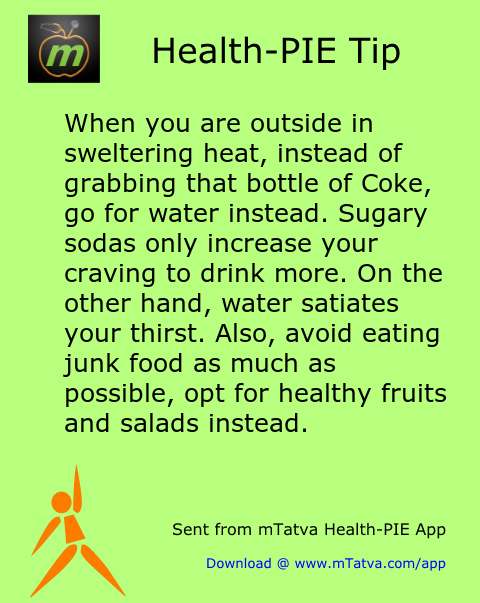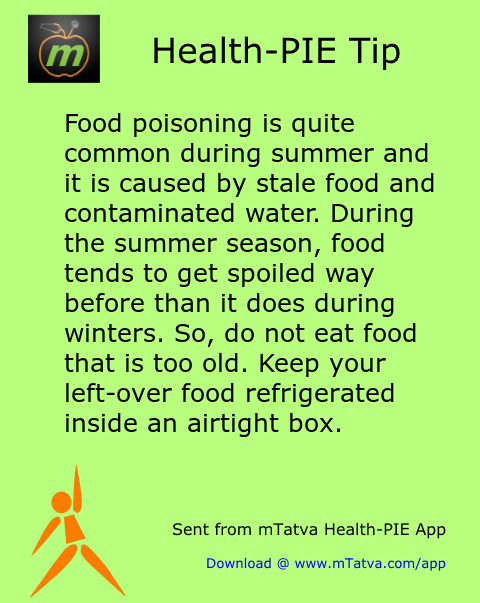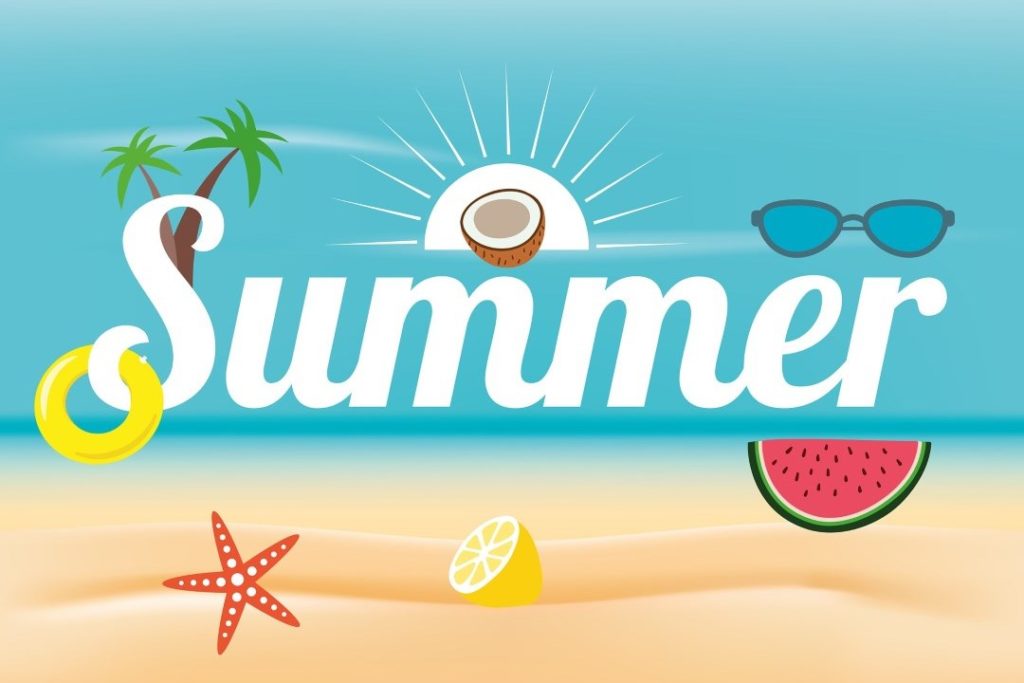
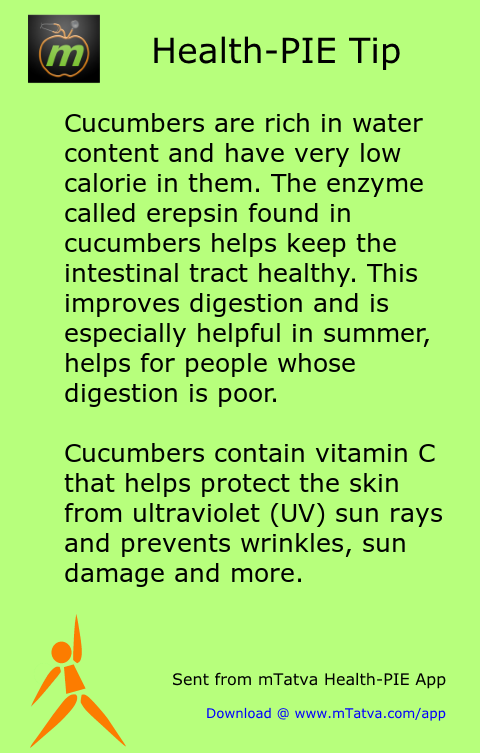
Cucumbers are rich in water content and have very low calorie in them. The enzyme called erepsin found in cucumbers helps keep the intestinal tract healthy. This improves digestion and is especially helpful in summer, helps for people whose digestion is poor. Cucumbers contain vitamin C that helps protect the skin from ultraviolet (UV) sun rays and prevents wrinkles, sun damage and more.
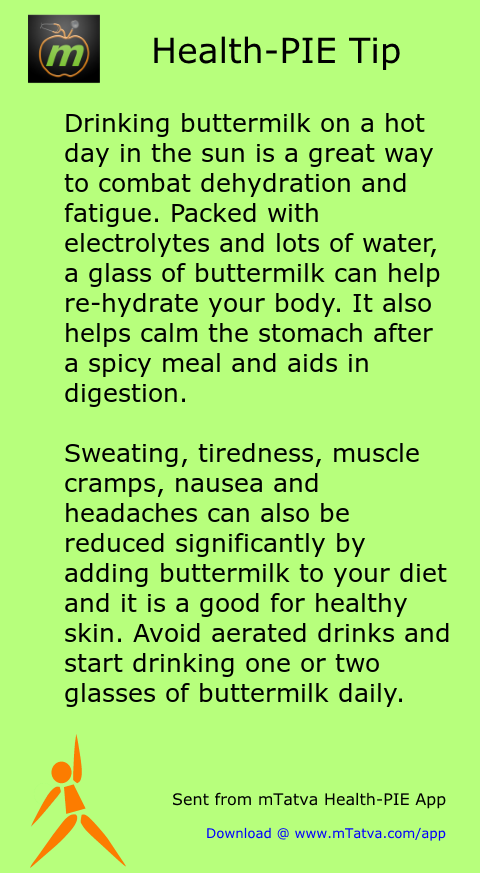
Drinking buttermilk on a hot day in the sun is a great way to combat dehydration and fatigue. Packed with electrolytes and lots of water, a glass of buttermilk can help re-hydrate your body. It also helps calm the stomach after a spicy meal and aids in digestion.Sweating, tiredness, muscle cramps, nausea and headaches can also be reduced significantly by adding buttermilk to your diet and it is a good for healthy skin. Avoid aerated drinks and start drinking one or two glasses of buttermilk daily.
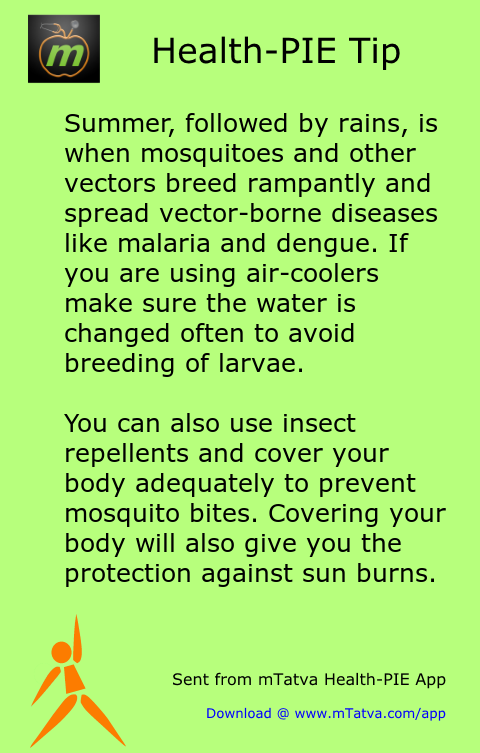
Summer, followed by rains, is when mosquitoes and other vectors breed rampantly and spread vector-borne diseases like malaria and dengue. If you are using air-coolers make sure the water is changed often to avoid breeding of larvae. You can also use insect repellents and cover your body adequately to prevent mosquito bites. Covering your body will also give you the protection against sun burns.
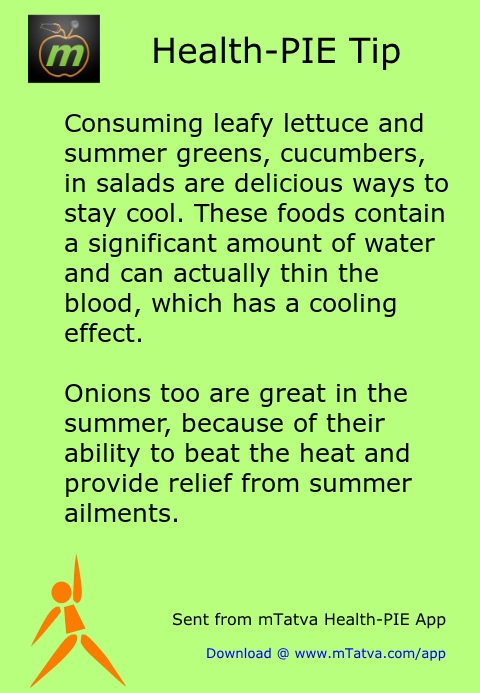
Consuming leafy lettuce and summer greens, cucumbers, in salads are delicious ways to stay cool. These foods contain a significant amount of water and can actually thin the blood, which has a cooling effect. Onions too are great in the summer, because of their ability to beat the heat and provide relief from summer ailments.
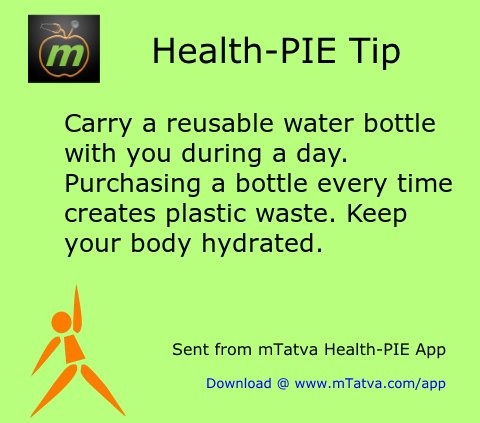
Carry a reusable water bottle with you during a day. Purchasing a bottle every time creates plastic waste. Keep your body hydrated.
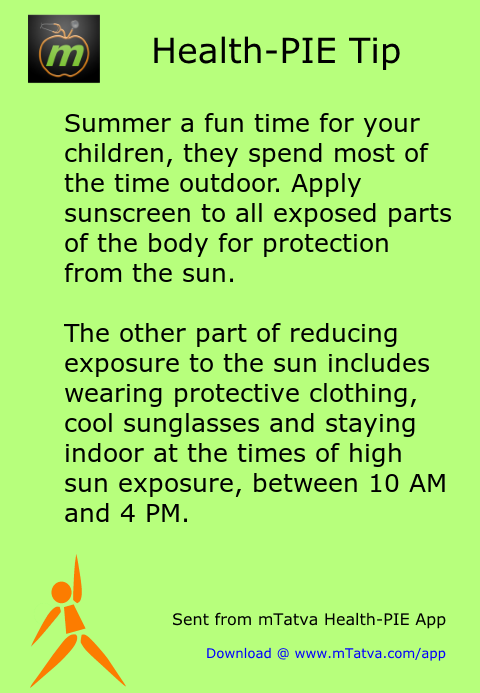
Summer a fun time for your children, they spend most of the time outdoor. Apply sunscreen to all exposed parts of the body for protection from the sun.nnThe other part of reducing exposure to the sun includes wearing protective clothing, cool sunglasses and staying indoor at the times of high sun exposure, between 10 AM and 4 PM.
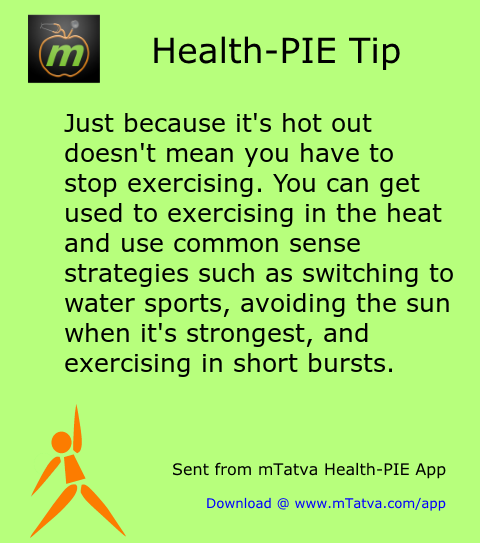
Just because it’s hot out doesn’t mean you have to stop exercising. You can get used to exercising in the heat and use common sense strategies such as switching to water sports, avoiding the sun when it’s strongest, and exercising in short bursts.
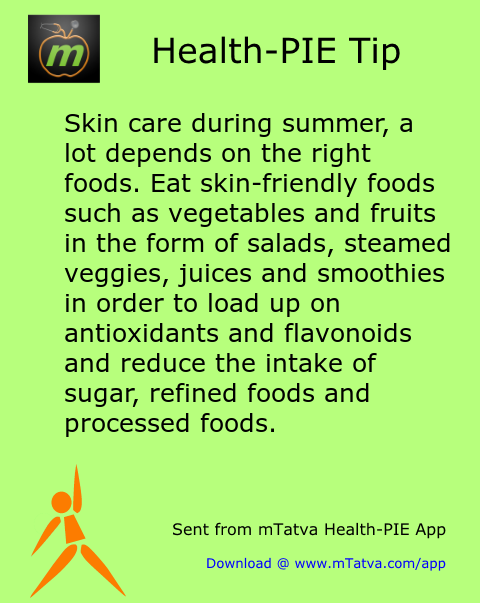
Skin care during summer, a lot depends on the right foods. Eat skin-friendly foods such as vegetables and fruits in the form of salads, steamed veggies, juices and smoothies in order to load up on antioxidants and flavonoids and reduce the intake of sugar, refined foods and processed foods.
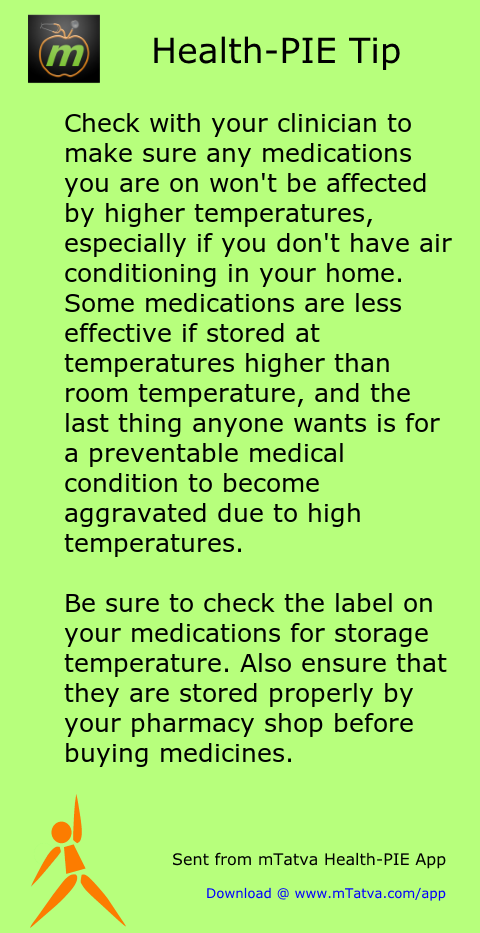
Check with your clinician to make sure any medications you are on won’t be affected by higher temperatures, especially if you don’t have air conditioning in your home. Some medications are less effective if stored at temperatures higher than room temperature, and the last thing anyone wants is for a preventable medical condition to become aggravated due to high temperatures. Be sure to check the label on your medications for storage temperature. Also ensure that they are stored properly by your pharmacy shop before buying medicines.
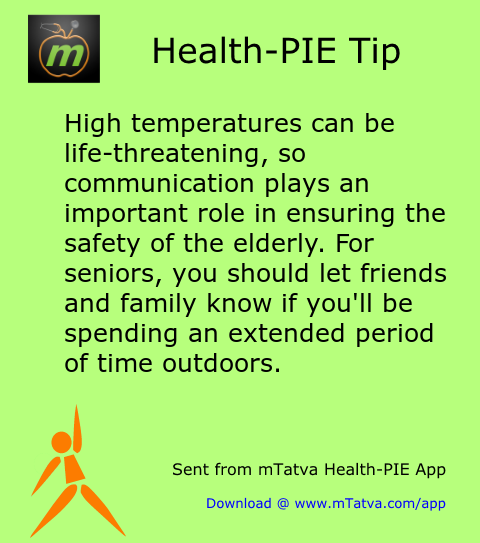
High temperatures can be life-threatening, so communication plays an important role in ensuring the safety of the elderly. For seniors, you should let friends and family know if you’ll be spending an extended period of time outdoors.
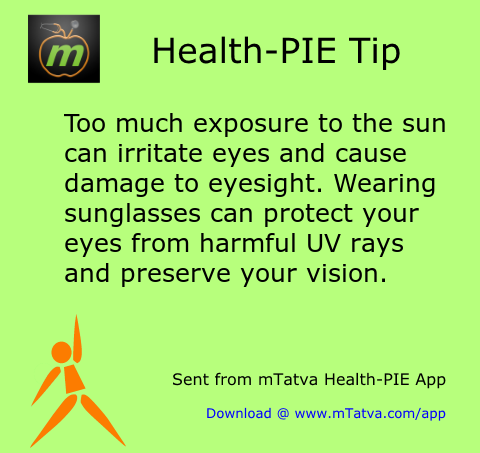
Too much exposure to the sun can irritate eyes and cause damage to eyesight. Wearing sunglasses can protect your eyes from harmful UV rays and preserve your vision.
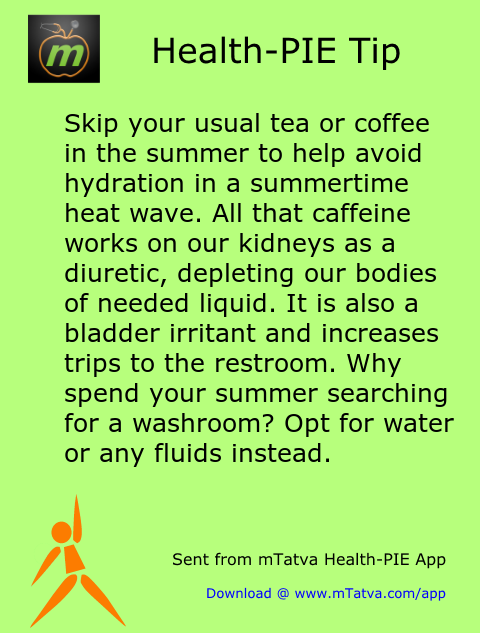
Skip your usual tea or coffee in the summer to help avoid hydration in a summertime heat wave. All that caffeine works on our kidneys as a diuretic, depleting our bodies of needed liquid. It is also a bladder irritant and increases trips to the restroom. Why spend your summer searching for a washroom? Opt for water or any fluids instead.
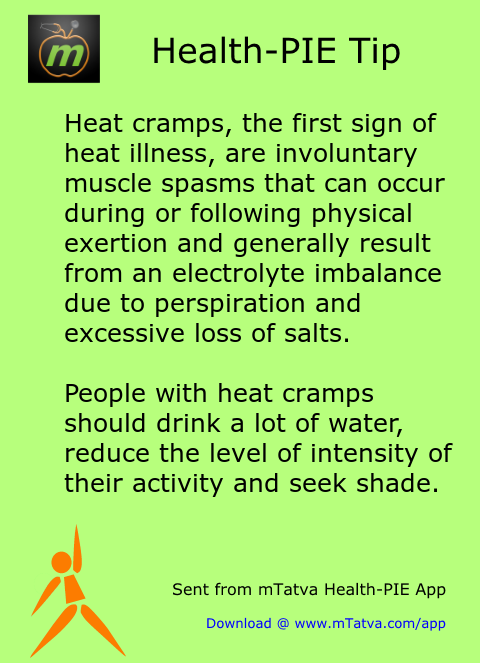
Heat cramps, the first sign of heat illness, are involuntary muscle spasms that can occur during or following physical exertion and generally result from an electrolyte imbalance due to perspiration and excessive loss of salts. People with heat cramps should drink a lot of water, reduce the level of intensity of their activity and seek shade.
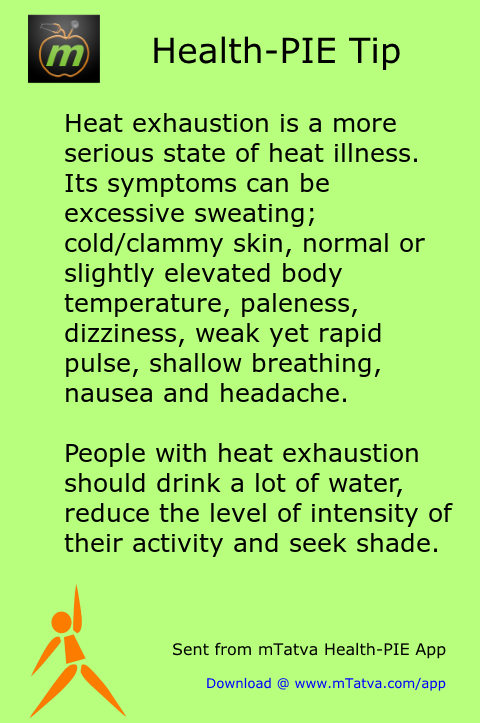
Heat exhaustion is a more serious state of heat illness. Its symptoms can be excessive sweating; cold/clammy skin, normal or slightly elevated body temperature, paleness, dizziness, weak yet rapid pulse, shallow breathing, nausea and headache. People with heat exhaustion should drink a lot of water, reduce the level of intensity of their activity and seek shade.
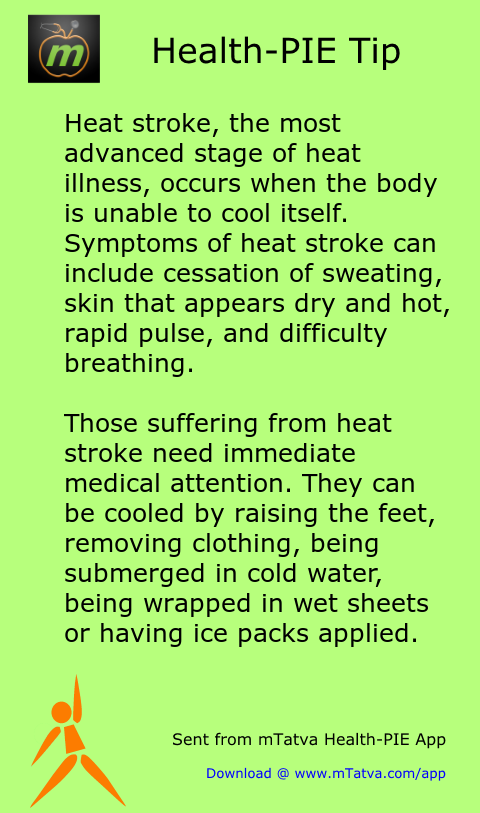
Heat stroke, the most advanced stage of heat illness, occurs when the body is unable to cool itself. Symptoms of heat stroke can include cessation of sweating, skin that appears dry and hot, rapid pulse, and difficulty breathing. Those suffering from heat stroke need immediate medical attention. They can be cooled by raising the feet, removing clothing, being submerged in cold water, being wrapped in wet sheets or having ice packs applied.
